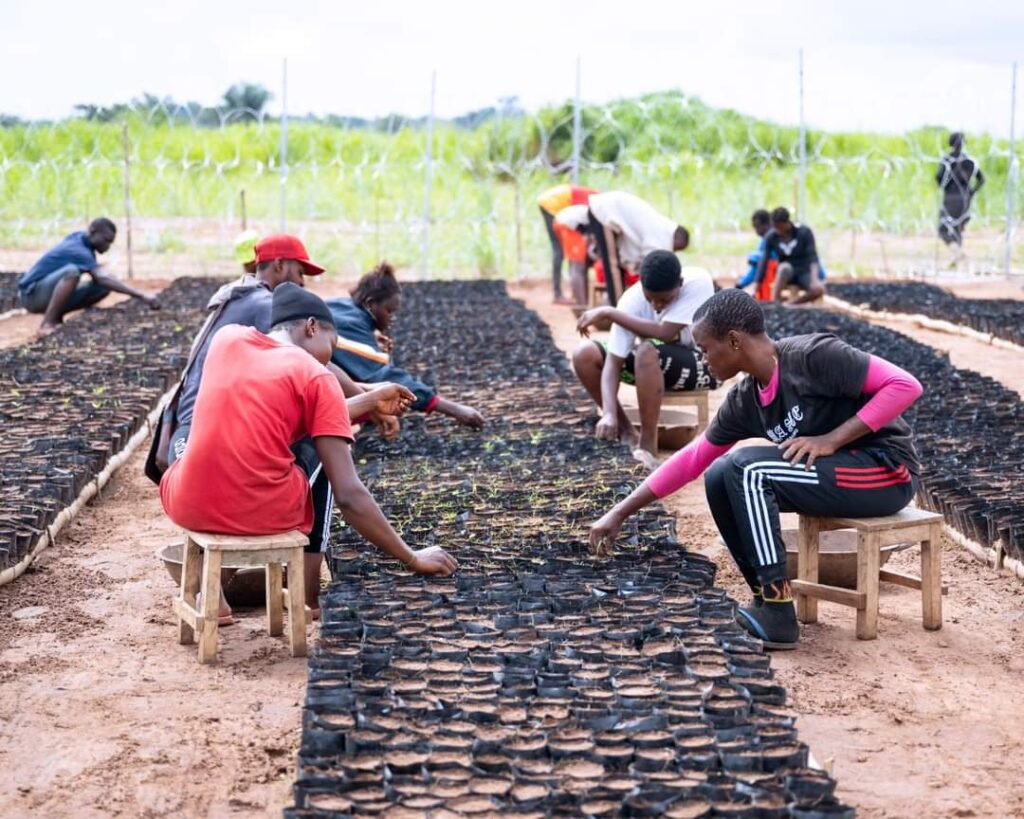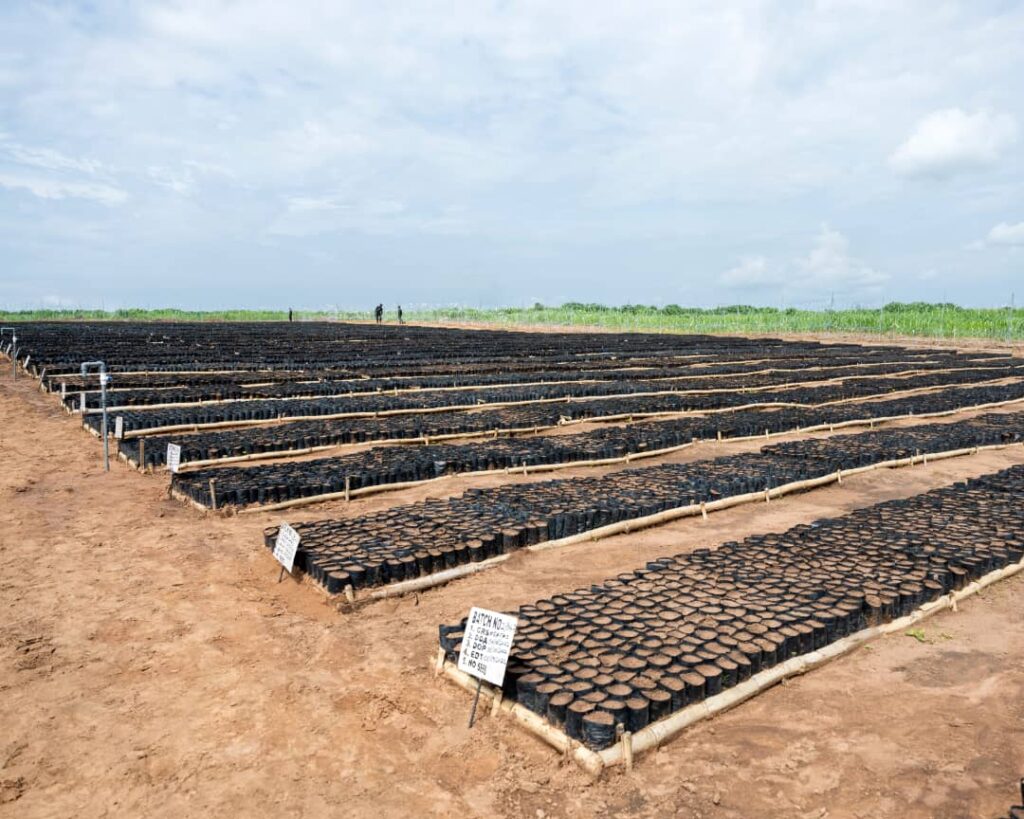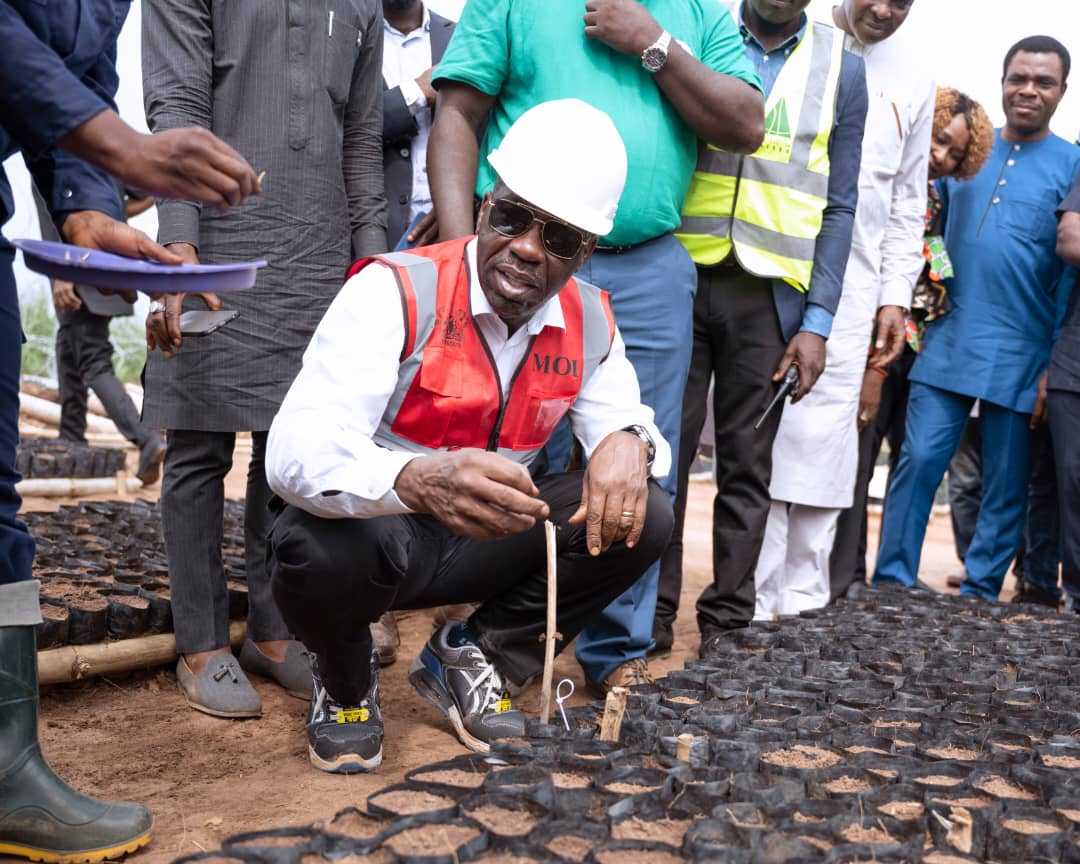Nigeria’s economy highly depends on crude oil and gas as its major source of revenue and foreign exchange earner, which has remained a major economic determinant for the nation over the years.
The over-dependence on crude oil has obliterated the need to pay attention to other sources of revenue which could have increased export receipts for the country.
Recently the instability in the global oil industry has made it risky for oil producing countries like Nigeria to rely on crude oil proceeds, hence the need for economic diversification.
Edo State before the election of Governor Godwin Obaseki relied on allocation from the Federal Government which was not sufficient to tackle the myriads of economic challenges confronting the State.

Governor Obaseki began the campaign for the diversification of the economy by giving the needed support to private investors to invest in other sectors of the economy.
A major achievement in this direction is the development of the oil palm cultivation and production in the State. The prices of crude palm oil which serves as a major source of raw materials for industries the world over have been on the rise occasioned by growing demand for the product in the international market, surpassing that of crude oil, which underscores the need to place oil palm production at the zenith of economic affairs in the State.
READ ALSO: Edo state poised to bridge 20% of Nigeria’s supply gap for oil palm products – Gov. Obaseki
To kick-off the laudable chains of events, a Land Use Land Change Analysis (LULCA) done by Proforest, a global organization, shows that the State has over 500,000 hectares which was reserved for government use in the 1930s and the Governor directed that degraded parts of the forest reserves be used for oil palm cultivation and development, as one hectare of oil palm farm has the capacity to directly employ thirty to forty persons.

The Edo State Oil Palm Program (ESOPP) which is an initiative of Governor Obaseki, was tasked with the responsibility to reposition the State to become the highest exporter of oil palm products in Nigeria which will in turn become a major source of revenue for the State and secure the environment.
Having put in place a business-friendly atmosphere, attracting investors to pursue the core objectives of ESOPP is achievable.
So far, 64,000 hectares of degraded forest lands have been given to credible investors such as Dufill, Flour Mills, Fayus Inc., Saro Africa amongst others. In ESOPP, sustainability has been a key element in delivering their mandate.
The need for every investor under ESOPP to comply with the RoundTable for Sustainable Palm Oil (RSPO) principles and criteria means that every investor must sustain palm oil cultivation by adhering to global best practice and ensuring that oil palm cultivation does not adversely affect host communities socially, physically, ecologically, or humanly.
This is important as communities’ shrines and sacred grounds within the allocations that are of sentimental values to communities are not touched and communities will be given unhindered access to such places.
Notably, Edo State is the only State in Nigeria that has signed the Marrakech Declaration alongside ten other countries which account for 75 per cent ow Africa’s forests from the Tropical Forest Alliance’s Africa Palm Oil Initiative (APOI), which include Cameroon, Central African Republic (CAR), Côte D’Ivoire, Democratic Republic of Congo, Gabon, Ghana, Liberia, Republic of Congo, Sierra Leone and Edo State (Nigeria), making Edo State the only sub-national participant in the agreement that ensures that oil palm is produced sustainably, while promoting gender equality, supporting smallholder livelihoods, protecting humans, plants and animals from any process in the oil palm cultivation and production.

The need to maintain the forest reserve in the State due to the high increase of deforestation was an area of interest to the State Governor.
As such, investors in the State’s oil palm program were charged to support the State Government in carrying out reforestation in the cultivated areas to achieve double accomplishment in the areas of oil palm cultivation and afforestation.
ESOPP has been packed with positive developments and commendable achievements as it has created hundreds of job opportunities for residents of the State; encouraged community development as investors commit to action plans that will bring various developmental projects to their host communities such as potable water; electric power supply; academic scholarships; construction of modern social infrastructure; reduced rural-urban migration; encourage afforestation; attracting over $531 million oil palm investment in the State which has helped amplify the State’s IGR, to mention a few.
Oil palm products are used in about 50 percent of all the products sold in a typical supermarket and with a good reason, it is extremely versatile and has lifted millions of people out of poverty and when properly managed, can be beneficial to the environment.
Other products associated with oil palm are food products, detergents, shampoo, cosmetics and bio fuel.
According to Statista in 2018/2019, the palm oil usage amounted to over 71 million metric tons worldwide. The figure increased to approximately 73.9 million metric tons by 2021/2022. Economically, palm oil could easily be considered a good investment.
The oil palm industry has grown steadily over the last two decades with demand consistently outstripping supply. To become the world’s most produced and most consumed vegetable oil, this initiative of Governor Obaseki is worthy of support and commendations.


